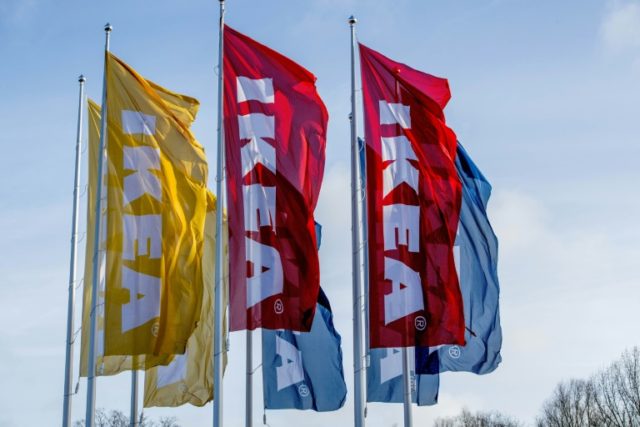Swedish furniture company Ikea is the latest Western corporation facing pressure to comply with China’s speech codes, as Chinese media and Internet users assail the company for treating Taiwan like a separate company on its website.
The situation is similar to the way China forced Western airlines to change their websites so Taiwan does not appear in menu selections as if it were an independent country. Even U.S. carriers explicitly encouraged to resist by the White House eventually capitulated and changed their websites to treat Taiwan as a province of China or list Taipei as a city without a country.
The South China Morning Post explained on Tuesday that Chinese media trained a spotlight on Ikea’s shipping and product labels, which ostensibly violate the “One China” principle by listing Taiwan and Hong Kong as if they were separate countries. Chinese social media dutifully went nuts over the perceived slight:
Mainland internet users added to pressure on the company, posting images of product packaging from the popular furniture chain on Weibo, China’s version of Twitter, that gave Taiwan the same status as countries such as India, South Korea, and the Philippines.
“[Ikea] earns money in China yet it is trying to separate the country?” one person wrote on Weibo.
Another said: “Ikea has always separated Taiwan and Hong Kong from China in its product tags and on its website… Ikea must correct this.”
The crusade against Ikea is even more nitpicky than the SCMP description conveys. Taiwan News clarified the Chinese are angry about the font size used for Taiwan’s name on the labels Ikea sticks on its products:
According to reports, Weibo users have begun criticizing the labels on various products and the IKEA official website. They are concerned over the separate product descriptions, where Taiwan receives its label and text in traditional characters, while China’s label is written in simplified characters.
[…] The case was first cracked open when a Sina Weibo user noticed the label on the bottom of a vase, which he bought at an IKEA store, referred to Taiwan in the same font size and manner as China and other countries.
But that is not all. Another consumer inspected his kitchen utensils purchased from IKEA on Aug. 20 and discovered that Taiwan was represented in the product label and additional materials in the same manner as Japan, China, and other countries.
The Global Times did some detective work of their own and found that on IKEA’s website Taiwan and Hong Kong are referred to as “locations” rather than “countries.”
China’s state-run Global Times also discovered Ikea outrageously colors in Taiwan as a separate country on the tiny regional maps that appear on its labels. The Chinese are obsessed with regional maps. They forced clothing retailer Gap to apologize in May for selling T-shirts that depicted mainland China but did not include Taiwan and all of the South China Sea islands claimed by Beijing.
As of Tuesday morning, there was no indication of the Chinese government threatening fines or other punitive action against Ikea for its transgressions, as it did with the airlines and other companies bullied into complying with Chinese speech codes. The role of state-controlled media in whipping up the anti-Ikea frenzy will doubtless send a strong message to the company.
China’s use of “sharp power” to impose its ideology on the free world through economic leverage need not include direct threats of government action. Such heavy-handedness could be risky while China is reeling from an unexpectedly difficult trade war with the United States and apprehensive about its political stability for the first time in a long while.
Instead, Ikea faces a swarm of nationalist Chinese netizens inspired to anger by state media, which claims it was merely reporting the work of a few diligent private “sleuths.” This is the most refined form of sharp power, targeting foreign companies with a vague threat of financial repercussions inflicted by Chinese consumers rather than government ministries. It also stirs nationalist fervor and gives the Chinese people something to be angry at besides their own leadership.
Along those lines, the Global Times helpfully offered a suggestion for how the Swedish company can repair the damaged calm of its Chinese customer base: Although Ikea separated Spain’s stores and those in the Canary Islands and the Balearic Islands, it uses “Spain-Mainland” and “Spain-Balearics and Canary Islands” to distinguish them from each other.
Both the islands are autonomous communities of Spain.
As to the incredibly petty nature of the complaint: that is a feature of sharp power, not a bug. Obsessing over trivial matters keeps Western companies nervous and makes them proactively worried about doing anything that might offend China. They will likely go the extra mile to avoid giving offense in the future. Some of them might even decide that dealing with Taiwan at all is more trouble than it’s worth.

COMMENTS
Please let us know if you're having issues with commenting.